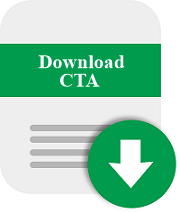Effect of Cryptocurrency on Inflation in Nigeria
Economics
DOI:
https://doi.org/10.56897/iefr.v1i2.21Abstract
With the iconic move of demonetization, a drastic change is seen in the payment methods of the people. Now, the government wants its citizens to adopt new methods, thus, Nigeria has also triggered its next move to usher itself into the era. Therefore the aim of this paper is to examine the effect of cryptocurrency on inflation in Nigeria. The paper applied Vector Auto-regression (VAR) to analyze multivariate time series data for the period of 2009Q1 to 2021Q4. The finding from impulse response shows that, cryptocurrency account for a positive response to inflation in the first three periods and a negative response in the remaining periods, while money supply account a positive response throughout the periods. However, the results from variance decomposition show that cryptocurrency account for little variation in the inflation throughout the periods but money supply account for high variations of the inflation. Based on the findings, the paper recommends that, in order to reduce the level of inflation in the country, money supply should be curtailed by the monetary authority.
Keywords: Cryptocurrency, Inflation, Money supply, Vector Auto-regression
References
Andrikopoulos, T., Hudson, R., Akbar, S., & Saftoiu, D. (2018). Cryptocurrencies meet inflation theory. Available at SSRN 3243459.
Arjaliès, D. L. (2021). The Role of Utopia in the Workings of Local and Cryptocurrencies. In The Palgrave handbook of technological finance (pp. 95-137). Palgrave Macmillan, Cham.
Asimakopoulos, S., Lorusso, M., & Ravazzolo, F. (2019). A New Economic Framework: A DSGE with Cryptocurrency. CAMP Working Paper, 7/2019.
Bianchi, D. (2018). Cryptocurrencies as an asset class? An empirical assessment. The Journal of Alternative Investments, 23(2), 162-179.
Catania, L., Grassi, S., & Ravazzolo, F. (2019). Forecasting cryptocurrencies under model and parameter instability. International Journal of Forecasting, 35(2), 485-501.
Choi, S., & Shin, J. (2021). Bitcoin: An inflation hedge but not a safe haven. Finance Research Letters, 46, 102379.
Corbet, S., Lucey, B., Urquhart, A., & Yarovaya, L. (2019). Cryptocurrencies as a financial asset: A systematic analysis. International Review of Financial Analysis, 62, 182-199.
Dabrowski, M., & Janikowski, L. (2018). Virtual currencies and central bank’s monetary policy: challenges ahead. depth analysis. Monetary Dialogue July.
Das, D., Le Roux, C. L., Jana, R. K., & Dutta, A. (2019). Does Bitcoin hedge crude oil implied? volatility and structural shocks? A comparison with gold, commodity and the US Dollar. Finance Research Letters, 36, 101335.
Feng, W., Wang, Y., & Zhang, Z. (2018). Can cryptocurrencies be a safe haven: a tail risk perspective analysis. Applied Economics, 50(44), 4745-4762.
Hencic, A. and Gourieroux, C. (2014). Noncausal autoregressive model in application to Bitcoin/USD exchange rate. In: Proceedings of the 7th Financial Risks International Forum, Paris, France.
Houben, R., & Snyers, A. (2018). Cryptocurrencies and blockchain. Legal context and implications for financial crime, money laundering and tax evasion, 1-86.
Houben, R., & Snyers, A. (2018). Cryptocurrencies and blockchain: Legal context and implications for financial crime, money laundering and tax evasion.
Ilham, R. N., Sadalia, I., Irawati, N., & Sinta, I. (2022). Risk And Return Model of Digital Cryptocurrency Asset Investment in Indonesia. Al Qalam: Jurnal Ilmiah Keagamaan dan Kemasyarakatan, 16(1), 357-376.
Khedr, A. M., Arif, I., El‐Bannany, M., Alhashmi, S. M., & Sreedharan, M. (2021). Cryptocurrency price prediction using traditional statistical and machine‐learning techniques: A survey. Intelligent Systems in Accounting, Finance and Management, 28(1), 3-34.
Kusumastuty, C. A., Wulandari, D., Narmaditya, B. S., & Kamaludin, M. (2019). Do monetary variables affect to cryptocurrency price? Lesson from Indonesia. Jurnal Ekonomi dan Studi Pembangunan, 11(2), 131-142.
Laboure, M., H.‐P. Müller, M., Heinz, G., Singh, S., & Köhling, S. (2021). Cryptocurrencies and cbdc: The route ahead. Global Policy, 12(5), 663-676.
Meynkhard, A. (2019). Fair market value of bitcoin: Halving effect. Investment Management and Financial Innovations, 16(4), 72-85.
Nagpal, D. (2017). Cryptocurrency: The revolutionary future money. Available at SSRN 3090813.
Nguyen, T. V. H., Nguyen, B. T., Nguyen, K. S., & Pham, H. (2019). Asymmetric monetary policy effects on cryptocurrency markets. Research in International Business and Finance, 48, 335-339.
Niepelt, D. (2018). Reserves for all? Central Bank Digital Currency, deposits, and their (non)-equivalence.
Oh, J. H., & Nguyen, K. (2018). The growing role of cryptocurrency: what does it mean for central banks and governments. International Telecommunications Policy Review, 251, 33-55.
Ozer, F., & Sakar, C. O. (2022). An automated cryptocurrency trading system based on the detection of unusual price movements with a Time-Series Clustering-Based approach. Expert Systems with Applications, 200, 117017.
Resta, M., Pagnottoni, P., & De Giuli, M. E. (2019). Technical analysis on the bitcoin market: trading opportunities or investors’ pitfall? Risks, 8(2), 44.
Riska Dwi, A., & Nadia, F. (2018). The Effect of Cryptocurrency on Exchange Rate of China: Case Study of Bitcoin.
Sapuric, S. and Kokkinaki, A. (2014). Bitcoin is volatile! Isn’t that, right? In: Business Information Systems Workshops, Lecture Notes in Business Information Processing, pp. 255-265.
Smales, L. A. (2021). Cryptocurrency as an alternative inflation hedge? Available at SSRN 3883123.
Yakupoğlu, C. (2016). A comparative study of bitcoin and alternative cryptocurrencies (Doctoral dissertation, Ankara Yıldırım Beyazıt Üniversitesi Fen Bilimleri Enstitüsü).
Downloads
Published
How to Cite
Issue
Section
License
Copyright (c) 2022 BadamasiSani Mohammed, Sule Ya’u Hayewa, Hussaini Shuaibu, Nuruddeen Mahmud Bunu

This work is licensed under a Creative Commons Attribution 4.0 International License.
<a rel="license" href="http://creativecommons.org/licenses/by/4.0/"><img alt="Creative Commons License" style="border-width:0" src="https://i.creativecommons.org/l/by/4.0/88x31.png" /></a><br />This work is licensed under a <a rel="license" href="http://creativecommons.org/licenses/by/4.0/">Creative Commons Attribution 4.0 International License</a>.









